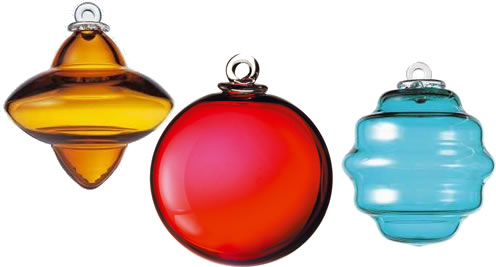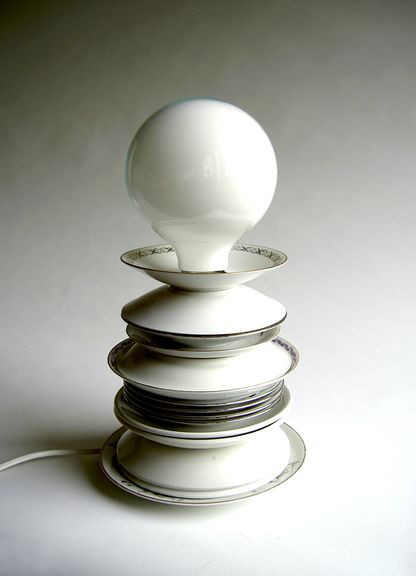Difference between revisions of "Murska Sobota Gallery"
Anže Zorman (talk | contribs) (added maintainer) |
(update) |
||
| Line 24: | Line 24: | ||
{{Teaser| | {{Teaser| | ||
| − | Internationally [[Murska Sobota Gallery]] is recognised as the organiser and host of the [[European Triennial of Small Sculpture]]. Otherwise it is regionally oriented: it exhibits mostly regional and established Slovene artists presenting their recent art works in the form of solo exhibitions and holds an important collection of Slovene art. The gallery pays particular attention to education by preparing workshops for children and organising seminars for adults dealing not only with contemporary exhibited art production, but sharing knowledge of art history as well. | + | Internationally [[Murska Sobota Gallery]] is recognised as the organiser and host of the [[European Triennial of Small Sculpture]], though the last edition was set up in 2010. Otherwise it is regionally oriented: it exhibits mostly regional and established Slovene artists presenting their recent art works in the form of solo exhibitions and holds an important collection of Slovene art. The gallery pays particular attention to education by preparing workshops for children and organising seminars for adults dealing not only with contemporary exhibited art production, but sharing knowledge of art history as well. |
}} | }} | ||
| Line 38: | Line 38: | ||
In 1980 the exhibitions moved into a purpose-built gallery space in Kocljeva ulica, and in 1992 the [[Municipality of Murska Sobota]] established an independent public cultural institution under the current name Murska Sobota Gallery. | In 1980 the exhibitions moved into a purpose-built gallery space in Kocljeva ulica, and in 1992 the [[Municipality of Murska Sobota]] established an independent public cultural institution under the current name Murska Sobota Gallery. | ||
| − | ==Exhibition programme | + | ==Exhibition programme== |
| − | The programme is based on solo exhibitions of regional | + | The programme is based on solo exhibitions of regional, national or international artists. Exhibitions are curated by both house and sometimes freelance curators, for instance the exhibitions of paintings by [[Gustav Gnamuš]], [[Marjan Gumilar]], [[Robert Černelič]] or [[Ladislav Danč]] (1932–1979) who belongs to the second generation of academically educated artists from the Prekmurje region. |
| − | + | Art historian and a curator of the [[Murska Sobota Regional Museum]] [[Janez Balažic]] curated the exhibition ''Works of Art from Prekmurje'' with the aim to present the main milestones of art history from romanticism to modernism in the region. | |
| − | |||
| − | Art historian and a curator of the [[Murska Sobota Regional Museum]] [[Janez Balažic]] curated the exhibition ''Works of Art from Prekmurje'' with the aim to present the main milestones of art history from romanticism to modernism in the region | ||
==European Triennial of Small Sculpture, Murska Sobota== | ==European Triennial of Small Sculpture, Murska Sobota== | ||
Revision as of 14:53, 5 November 2019
History
The fine art exhibiting activities began in Murska Sobota already in 1965, with the opening of the exhibition pavilion by architect Franc Novak, forerunner of today's Murska Sobota gallery. Early exhibitions of regional art were dominated by the work of artists from the immediate area, but the programme was later expanded to include exhibitions of work from the rest of Slovenia and from abroad.
The pavilion became the first host of the Pannonian International Art Exhibition, for the first time organised in 1967 and entitled The Pannonian Landscape and People. It presented works by artists from Austria, Croatia, Hungary, and Slovenia. Until 1971 Murska Sobota was the principal organiser of this exhibition, but it later continued in Hungary (at the Savaria Museum, Szombathely in 1973) and Austria (at the Landesgalerie Schloss Esterhazy, Eisenstadt in 1975). The exhibition is now a triennial event in which Austria, Croatia, Hungary, and Slovenia participate.
In 1973 the pavilion also launched the first Yugoslav Biennial of Small Sculptures, which in 1999 developed into the European Triennial of Small Sculpture.
Between 1965 and 1992, visual arts activities in Murska Sobota were managed under different regional structures: before 1971 the exhibition pavilion operated within the Murska Sobota Regional Museum, and was then taken over by the Workers' University of Murska Sobota until 1978, when it was merged with Murska Sobota Regional and Study Library, Murska Sobota Regional Museum and the Park Cinema to form the Miško Kranjec Cultural Centre (as the centre, one of the first in Slovenia, was called until 1983).
In 1980 the exhibitions moved into a purpose-built gallery space in Kocljeva ulica, and in 1992 the Municipality of Murska Sobota established an independent public cultural institution under the current name Murska Sobota Gallery.
Exhibition programme
The programme is based on solo exhibitions of regional, national or international artists. Exhibitions are curated by both house and sometimes freelance curators, for instance the exhibitions of paintings by Gustav Gnamuš, Marjan Gumilar, Robert Černelič or Ladislav Danč (1932–1979) who belongs to the second generation of academically educated artists from the Prekmurje region.
Art historian and a curator of the Murska Sobota Regional Museum Janez Balažic curated the exhibition Works of Art from Prekmurje with the aim to present the main milestones of art history from romanticism to modernism in the region.
European Triennial of Small Sculpture, Murska Sobota
Regional and national frames of the programme of Murska Soboota Gallery exceed in the year of European Triennial of Small Sculpture. The Triennial of 2007 was entitled Joke, Satire, Irony and Serious Meaning and curated by Thomas Deecke with help of colleagues Tatjana Antošina (Moscow), Katia Baudin-Reneau (Strassbourg), Bruno Corá (Firence/La Spezia), Andreas Hapkemeyer (Bolzano), Ulrich Loock/Ricardo Nicolau (Porto), Franc Obal (Murska Sobota), David Thorp (London) and Margit Zuckriegl (Salzburg).
Permanent collection
Today the permanent collection of Murska Sobota Gallery comprises more than 550 art works by Slovene artists (mainly from the local milieu) plus donations and purchases from past Biennials of Small Sculptures. Since the gallery's premises are intended for temporary exhibitions and there is not enough space for the presentation of a permanent collection, the gallery exhibits selected works periodically, but almost as a rule there is one exhibition term per year dedicated to a curated insight in the collection.
In 2005, the gallery presented paintings, in 2006 sculptures, in 2008 they exhibited works on paper (drawings, graphics and artistic photography), including the newest acquisitions of the year. In 2009 the collection was enriched again by acquisitions of mostly regional and national artists like Natalija Šeruga, Martina Bohar, Žarko Vrezec, Zdenko Huzjan, Drago Tršar, Robert Černelč, and Vesna Drnovšek.
Educational programmes
The pedagogical programme focuses on pre-school children and primary school pupils with the course The First Time in the Gallery. Its main aim is to introduce children to art in a relaxed and entertaining manner. The Explore the Current Exhibition and Getting Familiar with World Famous Art Work activities are addressed to the primary and secondary school students. Art Workshops linked to the current exhibition have been also organised.
The gallery also offers Public Expert Guidance and lectures and classes of classical art history and topical issues in contemporary art, usually held by the curators of the Murska Sobota Gallery, occasionally also by invited guest lecturers.




